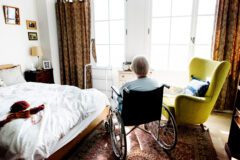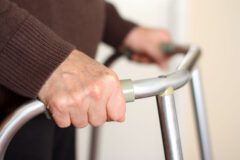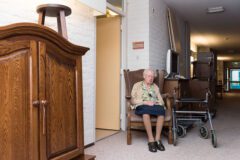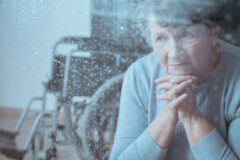6 Ways To Protect Your Parents From Nursing Home Abuse
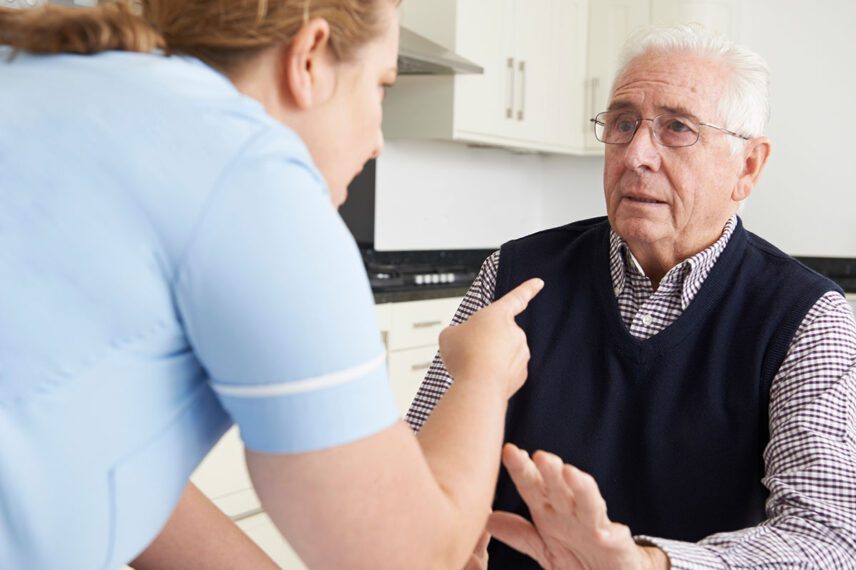
Nursing home abuse and neglect is a widespread issue that deserves more attention than it receives. Abuse often occurs at the hands of fellow residents, caretakers, or medical staff. It can be hard to identify, as it typically occurs when family and friends are absent.
Even worse, incidents of abuse are often unreported or concealed by facilities, with many complaints only becoming known after a family member or resident makes a public accusation. According to the National Center on Elder Abuse, over one-third of nursing homes fail to meet federal safety and care standards (although the actual statistics may be underreported).
However, even with such high statistics, there are a few things you can do to ensure your loved one receives proper and adequate care.
Here are the best ways to protect our family from nursing home neglect or abuse.
Check For Falls, Bed Sores, and Other Signs of Abuse
Some of the most preventable yet common signs of nursing home negligence and abuse include falls, bed sores, medication errors, and deliberate physical abuse. Elderly falls are one of the most preventable accidents, but typically occur when patients are dropped during bed or wheelchair transfers by staff. When staff members aren’t trained properly, they’re more likely to make costly mistakes that cause broken bones, bruises, brain injuries, or permanent disabilities during transfers.
Lying in the same place for too long leads to bed sores—which are skin sores in areas that have been pressed against the bed for too long. Bed sores happen when people are not encouraged to get out of bed or aren’t readjusted at least once every two hours. These sores limit blood flow and can lead to infections or life-threatening complications. Report any signs of skin sores to the nursing managing staff right away.
Further signs of neglect or abuse include medication errors such as unnecessary prescriptions, incorrect dosing, missing doses, mistaken administration of the wrong medication, and more. If your loved one reports their medication making them feel abnormal, it’s critical to take their concerns seriously and address it right away.
Be Aware of Red Flags
Not all signs of elderly abuse are as obvious as bruises or sores, so paying attention to any small changes in your loved one’s mood, nutrition, weight, or cognition is important. If your loved one suddenly starts showing signs of depression, fearfulness, or increased tiredness, speak with a manager as soon as possible. Additionally, you should also discuss any changes in behavior with your loved one. While they may be fearful of speaking their truth for fear of retribution from the facility, it’s vital that you provide a safe and comfortable setting for them to express any incidents of abuse or neglect. Be ready to move them to a different facility immediately if necessary.
Check for Financial Changes
Any suspicious withdrawals or activity to your loved one’s bank account should be investigated. Check for large withdrawals, checks, and abnormal financial transactions. To best protect your family member, consider appointing a family member as the power of attorney and create a procedure that requires their authorization for any financial transactions.
Use Technology to Monitor Your Parent
While laws may vary depending on the state you reside in, monitoring your loved one with a wireless camera is currently legal in Illinois, Texas, New Mexico, Oklahoma, Washington, and Louisiana. In other states, however, it is up to the discretion of each nursing home facility as to whether they will allow wireless cameras. However, it’s important to know that using a wireless camera as evidence of neglect or abuse may not hold up in a court of law in these states.
If wireless cameras are not allowed at your facility, you may still call your loved one using Facetime or user-friendly drop-in calling devices like the Amazon Echo Show. Video calls provide more visual information, such as body language and visual cues, allowing you to pick up on subtle hints that your loved one is feeling uncomfortable. Plus, you also get the added bonus of making your family member happy by seeing your face during a video call.
Visit Often
Remotely monitoring your loved one is a great option when you can’t visit them in person. However, it’s worth noting that nothing protects them from neglect or abuse more than seeing them in person as often as you can. Arranging to visit more than once a week at several unannounced times allows you to better understand how they are actually being cared for in your absence.
When you visit, keep an eye out for red flags such as overly sedated residents, unclean facilities, poor food services, lack of daily activities, unfriendly staff, unenforced COVID-19 precautions, or poor visitation hours.
Address Your Concerns To The Proper People
If you notice something that alarms you, you must make your grievance known to the proper authorities. Typically, you should start by speaking to the unit manager for your loved one. If your concerns go unaddressed, continue to move your way up through the chain of command until you can file an official complaint. If your concerns are not addressed within a few days, you should contact the nursing home owner or the nursing home regulatory agency in your location. If the grievance is causing immediate or severe harm to your loved one, do not hesitate to contact the police or Adult Protective Services. Additionally, consulting with an attorney knowledgeable in senior abuse can help ensure you take the necessary steps to file a legal claim.
Do You Suspect A Loved One Is A Victim Of Nursing Home Abuse Or Neglect In South Carolina?
If you suspect your loved one has suffered from neglect or abuse at the hands of their nursing home facility, there are few state resources you can contact in the state of South Carolina.
On top of these resources, it is important to contact a personal injury lawyer who is experienced with cases of senior abuse to ensure the mistreatment your loved one suffered will never happen to another person again.
If you choose to hold the facility caring for your loved one legally responsible for their mistreatment, a lawyer will guide you through the legal process, guaranteeing you do not accidentally do something that could negatively impact your case.

